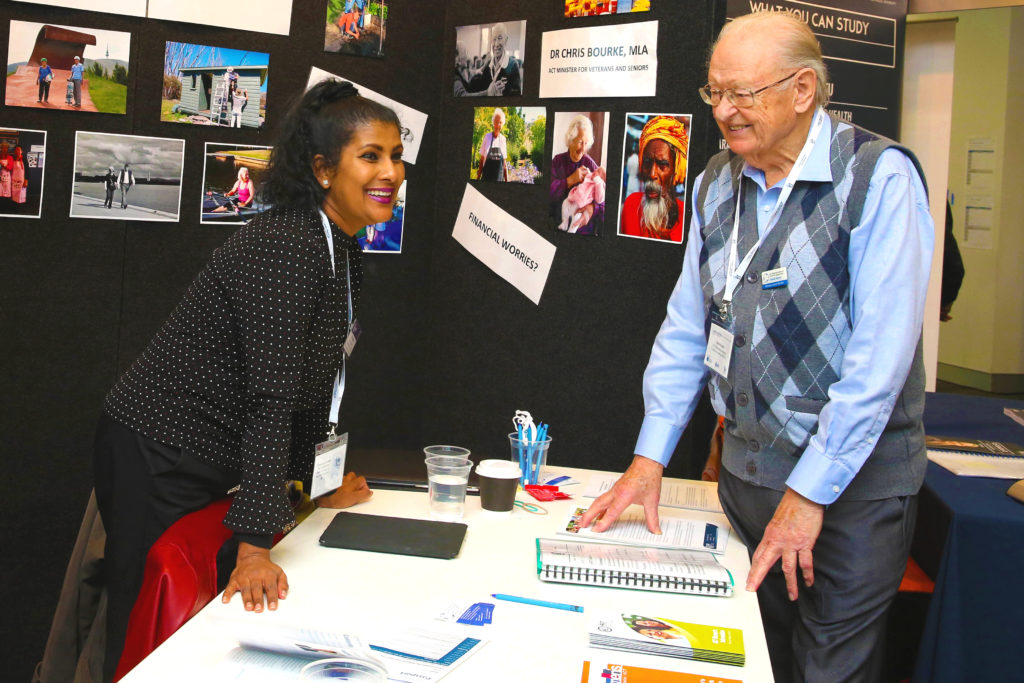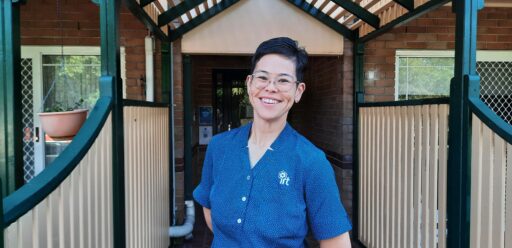6 tips to staying in the workforce as you age

It is a sad reality that older Australians experience age discrimination when looking for a job, so here we explore how you can improve your chances of finding your next job.
What does the research say?
According to the Australian Institute of Health and Welfare, Australians are increasingly working to an older age. People are living longer and often need to keep working to meet their financial commitments – but some older people are either working less than they would like to or are looking for work.
What’s going on?
The National Prevalence Survey into Age Discrimination in the Workplace 2015 found that over a quarter of Australians aged 50+ said they had experienced some form of age discrimination in the two years leading up to the survey’s publication. Attitudes towards older people and their value to society often underpins this discrimination. It’s an issue that’s taken very seriously by the government and that’s reflected in workforce legislation. Age Matters is working with the Australian Human Rights Commission to increase mature workforce participation as well as with the Every Age Counts campaign to tackle ageism. Age Matters is an initiative of IRT, which tackles homelessness, ageism and social isolation head on.
You might be interested to know that an Age Matters Mature Workforce Roundtable discussion revealed that:
- Jobs that had a strong customer focus, such as retail, tourism, and hospitality, were identified as roles where older workers excelled.
- Industries with flexible work hours, such as transport and retail, were also identified as being suitable for older people.
- The professional sector values skills and experience, and these roles are kinder on the ageing body.
- Some banking and insurance companies are increasing their engagement of mature age workers.
- Occupations offering opportunities for mentoring and leadership, especially where specialised or technical skills are required, were also mentioned.
What can you do?
- Former Age Discrimination Commissioner at the Australian Human Rights Commission (AHRC), the late The Hon Susan Ryan AO suggested that everyone should be getting a regular check-up on their careers as they age. To help you go the distance and plan out your working life it’s important to take stock of where you are at and where you want to be in the years ahead. The Australian Government’s Department of Education, Skills and Employment has a Mature Age Hub with information for job seekers over the age of 45. The hub includes a video on transferable skills, information on the labour market, what government assistance is available for older workers and resume writing. It’s a great place to start when thinking about your working career and the years ahead.
- If you are thinking about a career change, why not consider volunteering in the role or industry before making the switch? Age Matters has more than 400 volunteers supporting residents at IRT and plays a key role in optimising the health, independence, wellbeing and quality of life of our residents by taking on roles which improve their access to companionship, social activities, transport and so much more.
- Consider updating your skills and learn some new ones. Take a look at the Australian Government’s Myskills website for information about online courses, online training providers and find jobs that match your skills. There are also some inspiring stories about people who retrained later in life, including Chris who at the age of 50 was made redundant after 32 years in the same job. He went on to become a mental health worker through vocational education and training. You can watch his story here.
- Are you interested in aged care? Well IRT Academy might have the course for you. IRT Academy offers a wide range of nationally recognised full qualifications, short courses and skill set packages that have been developed by experts in the aged care industry. It also offers online and face-to-face job-ready training in aged care. Find out more about what IRT Academy has to offer.
- Try and maintain a positive outlook when it comes to applying for jobs – knockbacks are hard but try and learn from the experience. Don’t be afraid to ask prospective employers why you didn’t get the job – that information might be key to help you secure the next job opportunity that comes along.
- Don’t undervalue yourself and your skills – as an older worker, you bring a wealth of experience to the table. One of the most telling findings from Age Matters’ work with mature-age job seekers is that sometimes older workers are the most critical of their own skills and value. Raise your voice and tell people how great older workers can be and consider taking the pledge and joining the Every Age Counts campaign.
You may also like
Aged Care Employee Day – What you need to know
It takes a special someone to work in aged care. While every aged care employee has highly valued practical skills – whether they’re a nurse,…
11 benefits of working in aged care
Working in aged care is one of the most rewarding career paths in the health care sector.


